Bunny
Can Rabbits Eat Papaya? #Skin #Leaves #Seeds
Rabbit’s diet entirely consists of leaves, vegetables, and sometimes fruits. But there are still a few things that are hazardous for their health. Rabbit owners often wonder about what may be appropriate to feed them and what not because of their sensitive stomachs.
Contents
- 1 Can Rabbits Eat Green Papaya?
- 2 Introduction To Papaya
- 3 Health Benefits of Eating Papaya
- 4 Nutritional Facts About Papaya
- 5 Can You Feed Papaya Skin, Leaves, and Seeds to Rabbits?
- 6 Appropriate Quantity of Papaya for Rabbits
- 7 Health Hazards Associated With Feeding Papaya to Rabbits
- 8 Parting Words on Can Rabbits Eat Papaya?
It is true that if anything that is even slightly inappropriate for them, they can easily get sick or upset their stomach. In order to prevent such a thing, Rabbit owners are always advised to take expert suggestions or help from the internet before introducing anything into their diet.
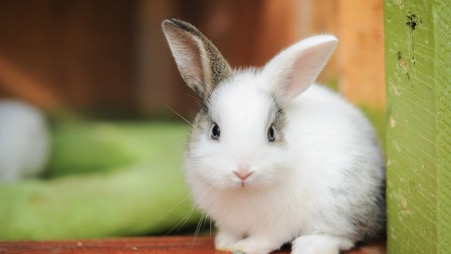
We have already seen, can rabbits eat squash, zucchini, etc. In this article, we are going to cover everything related to “Can Rabbit eat Papaya?” and everything else associated with it. You will learn various health benefits as well as hazards, appropriate amount, edible parts of papaya with this article.
Can Rabbits Eat Green Papaya?
To answer your question, Can Rabbits Eat Papaya? Yes, they absolutely can but the amount should be limited. You can feed your furry friend papaya only as a treat, as it cannot be used as a substitute for his regular food.
Due to the extra sweetness involved, your rabbits are going to like them better than their regular food but that doesn’t mean you can feed them as much as they ask for. You should always keep control of the portion while feeding the rabbits anything that is a little too sweet or has more fat in it.
Further in the article, we will also discuss how much portion is appropriate for them and what are the health benefits as well as hazards concerned with it. Keep reading to get the full info.
Introduction To Papaya
Now that you know, you can feed papaya to rabbits, you may want to learn a little more about them. Papaya is a fruit grown in tropical climates. They are also known as paw-paws or papaws. There are nearly 22 species of papaya are found in the world.
They are known for their sweet flavor, vibrant orange colors, and various health benefits. Papaya is a great ingredient to experiment within the kitchen, with its soft fleshy pulp and sweet-savory taste. But its importance is better seen in medicine where it is used for the treatment of various conditions and diseases.
They are native to Mexico and widely used for making juices, smoothies, fruit salads, etc. Earlier, Papayas used to be a rare fruit coming from exotic locations but now they are grown all around the year and became common.
Health Benefits of Eating Papaya
Papaya is a great source of countless nutritional elements as well as minerals. It is very beneficial for your overall health and skin. Not just for humans, but it also helps animals in avoiding some diseases and adds to their immunity.
It is an easily available fruit that you can get any time of the year. Unripe Papayas is also consumed on a great level because of their benefits and effectiveness. Below we have mentioned some health benefits of Papaya that will help you understand its usefulness better:
Important Note:
Just because Papaya provides countless nutritional benefits doesn’t mean you can feed them to your rabbits as much as you want. There’s only a downside to feeding them too much papaya that you will learn in this article further.
Nutritional Facts About Papaya
Some important contents of Papaya that you should know:
Energy – 179 kJ (43 kcal)
Carbohydrates – 10.82 g
Sugars – 7.82 g
Dietary fiber – 1.7 g
Fat – 0.26 g
Protein – 0.47 g
Vitamins
Vitamin A equiv. (6%) – 47 μg
beta-carotene (3%) – 274 μg
lutein zeaxanthin – 89 μg
Thiamine (B1) (2%) – 0.023 mg
Riboflavin (B2) (2%) – 0.027 mg
Niacin (B3) (2%) – 0.357 mg
Pantothenic acid (B5) – (4%) 0.191 mg
Vitamin B6 (3%) – 0.038 mg
Folate (B9) (10%) – 38 μg
Vitamin C (75%) – 62 mg
Vitamin E (2%) – 0.3 mg
Vitamin K (2%) – 2.6 μg
Trace metals
Calcium (2%) – 20 mg
Iron (2%) – 0.25 mg
Magnesium (6%) – 21 mg
Manganese (2%) – 0.04 mg
Phosphorus (1%) – 10 mg
Potassium (4%) – 182 mg
Sodium (1%) – 8 mg
Zinc (1%) – 0.08mg
Source: Wikipedia
Can You Feed Papaya Skin, Leaves, and Seeds to Rabbits?
Now that you know that Papaya is good for your rabbit’s health, it’s time to talk about other components of the fruits and whether or not they are appropriate for rabbits.
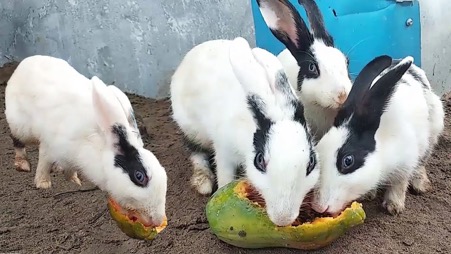
Do Rabbits eat Papaya Skin?
Yes, Papaya skin is good for rabbits and you can feed them as a treat. It is not as sweet as the fruit itself but it will still serve as a treat to them. In fact, they are a healthier option for them because of the less sugar content.
Can You Feed Papaya Leaves to Rabbits?
Leaves are also good for Rabbits. As we all know, that rabbits majorly consume leaves as a part of their daily eating habit so feeding them leaves is only normal. You can give them fresh and wilted leaves for food occasionally and they are also healthier.
Can You Feed Papaya Seeds to Rabbits?
When it comes to Papaya seeds, no you should not feed them seeds of papaya as they are indigestible for them and moreover, they do not provide them with any kind of health benefit. This is why you should take out all the seeds from Papaya before feeding them.
Can Rabbits eat Dried Papaya?
Rabbits can eat dried papaya if it is unsweetened. The sugar-coated ones may be harmful to your bunny due to higher sugar content. You can also check papaya tablets for humans to treat your rabbit. Make sure, it is a treat (2-3 cubes of dried papaya) should suffice.
Appropriate Quantity of Papaya for Rabbits
As we have discussed so far that feeding papaya to Rabbits is only okay when the amount is limited. This is because of the various health hazards concerned with that, that you will learn in the article further.
The correct amount of papaya to serve your rabbit is actually dependent on how much it weighs. If the weight of your rabbit is around 2 pounds, then feeding them a tablespoon of papaya would be enough.
Also, do remember, that you can only feed them papaya as a treat, so you should not serve it on a daily basis. Once or twice a week as a treat will suffice.
Health Hazards Associated With Feeding Papaya to Rabbits
Despite the very many benefits of Papaya for rabbits, it could still prove to be dangerous for them if not given in proper quantities. Papaya being a fruit that has higher sugar content is sensitive for their stomach as they are not used to it.
If rabbits eat more than the suggested quantity of papaya, their stomach can get very upset and they could have diarrhea. Due to higher carbohydrate contents, they could also gain more weight and become obese which is definitely not advised for their good health.
It is also very important to observe their reaction while feeding them papaya. It is to ensure that their body is able to digest it and they are not getting any other health issues because of the fruit.
Important To Note:
You should not feed papaya to baby rabbits who are below three months of age.
Parting Words on Can Rabbits Eat Papaya?
I hope you were able to get the answer to your question with this in-depth article. If you still have any questions regarding this topic, you can let us know by commenting in the comment box below. You can also share your feedback or suggestions by commenting below and we will make sure to check them out.

-

 Skunk4 years ago
Skunk4 years agoWhat Does Skunk Poop Look Like? Images & Identifications
-

 Bunny4 years ago
Bunny4 years agoPregnant Rabbit Labor Signs #Test#Symptoms#Age#Length
-
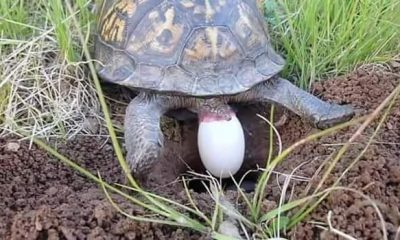
 Turtles5 years ago
Turtles5 years agoHow To Take Care of Turtle Egg At Home?
-

 Turtles4 years ago
Turtles4 years ago8 Basking Rocks/ Platforms for Turtles – A Perfect Guide
-
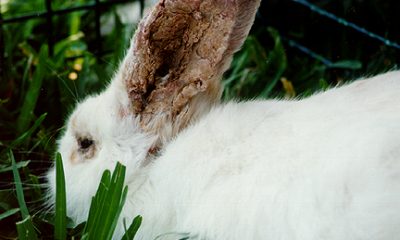
 Bunny5 years ago
Bunny5 years agoHow to Get Rid of Mites on Rabbits? #NaturalRemedies #Video
-

 Horse4 years ago
Horse4 years agoHow Much Weight Can a Horse Carry? #Clydesdale #Friesian #Mustang #Draft
-

 Turtles4 years ago
Turtles4 years agoHow to Take Care of Snapping Turtle Eggs? #Incubating #Hatching
-
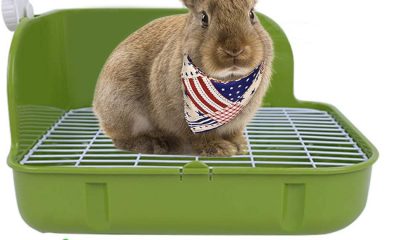
 Bunny5 years ago
Bunny5 years agoHow to Potty Train a Rabbit in House? Tips on Litter Training


















